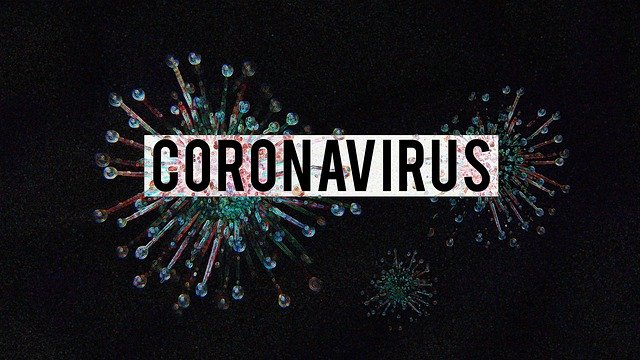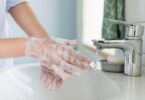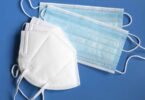As coronavirus continues to make news, a lot of falsehoods have surrounded the subject. In this special feature, we address some of these myths and conspiracies.
- Spraying chlorine or alcohol on the skin kills viruses in the body Applyi
ng alcohol or chlorine to the body can cause damage, especially if it enters the eyes or mouth. Although people can use these chemicals to disinfect surfaces, they should not use them on the skin.
- Only older adults and young people are at ri
sk SARS-CoV-2, like other coronaviruses, can infect people of any age. However, older adults or people with pre-existing health problems, such as diabetes or asthma, are more likely to become seriously ill.
- Children cannot catch COVID-19 All age groups can become infected. Most cases, so far, have been in adults, but children are not immune. In fact, preliminary evidence shows that children are just as likely to become infected, but their symptoms tend to be less severe.
- COVID-19 is like flu SARS-CoV-2 causes a disease that actually has flu-like symptoms, such as aches, fever, and coughs. Similarly, both COVID-19 and flu can be mild, severe, or, in rare, fatal cases. Both can also cause pneumonia.
- Everyone with COVID-19 dies This claim is false. As mentioned above, COVID-19 is only fatal for a small percentage of people.
- Cats and dogs transmit coronavirus Currently, there is little evidence that SARS-CoV-2 can infect cats and dogs. However, in Hong Kong, a Pomeranian whose owner had COVID-19 became infected. The dog showed no symptoms.
- Masks protect against coronavirus Health workers wear professional face masks, which fit tightly around the face, to protect against infection. However, disposable masks are unlikely to provide such protection.
As these masks don’t fit perfectly to the face, the drops can still enter the mouth and nose. In addition, small viral particles can penetrate directly through the material.
- Hand dryers kill the coronavirus Hand dryers do not kill the coronavirus. The best way to protect yourself and others from the virus is to wash your hands with soap and water or an alcohol-based hand sanitizer.
- SARS-CoV-2 is just a mutated form of the common cold Coronaviruses are a large family of viruses, all of which have pointed proteins on their surface. Some of these viruses use humans as their primary host and cause the common cold. Other coronaviruses, such as SARS-CoV-2, mainly infect animals.
- You have to be with someone for 10 minutes to get the virus. The longer someone is with an infected person, the more likely they are to get the virus, but it’s still possible to get it in less than 10 minutes.
- Rinsing the nose with saline solution protects against coronavirus There is no evidence that a nasal rinse with saline solution protects against respiratory infections. Some research suggests that this technique could reduce symptoms of acute upper respiratory tract infections, but scientists have not found that it can reduce the risk of infection.
- You can protect yourself by gargling with bleach There are no circumstances in which the gargle bleach can benefit their health. The bleach is corrosive and can cause serious damage.
- Antibiotics kill coronavirus Antibiotics only kill bacteria; They don’t kill viruses.
- Thermal scanners can diagnose coronaviruses Thermal scanners can detect if someone has a fever. However, other conditions, such as seasonal flu, can also cause fever.
- Garlic protects against coronaviruses Some research suggests that garlic may have antibiotic properties. However, there is no evidence that you can protect people from COVID-19.
- China’s plots can spread coronavirus From previous research on similar coronaviruses, including those that cause SARS and MERS and are similar to SARS-CoV-2, scientists believe the virus cannot survive in letters or packages for a while Prolonged.
- Home remedies can cure and protect against COVID-19 No home remedy can protect against COVID-19, including vitamin C, essential oils, silver colloid, sesame oil, garlic and sip of water every 15 minutes.
- Flu and pneumonia vaccines protect against COVID-19 Because SARS-CoV-2 is different from other viruses, no existing vaccine protects against infection.
- The outbreak began because people ate bat soup Although scientists trust that the virus started in animals, there is no evidence that it came from a soup of any kind.
What should we do?
The Centers for Disease Control and Prevention (CDC) recommends these simple measures to reduce the spread of SARS-CoV-2:
- avoid close contact with people who look sick
- try not to touch your eyes, nose or mouth
- stay at home if you’re sick
- sneeze in a handkerchief, then throw it away
- If you don’t have handkerchiefs handywed, sneeze in the hollow of your elbow
- use standard sprays and cleaning wipes to disinfect frequently touched objects and surfaces
- wash your hands with soap regularly for 20 seconds
- Unless you’re a health worker or caring for a sick person, the CDC doesn’t recommend wearing face masks. The above tips may seem simplistic, but during an epidemic, these are the best ways to make a difference.








